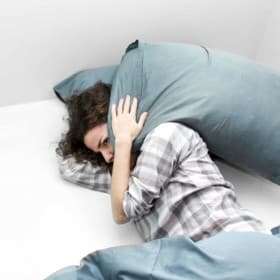Your sense of smell is more powerful than you think.
A whiff of the right scent can instantly change the way you feel, evoke strong memories and encourage the rise of specific emotions. Just think of how you feel when you smell freshly baked cookies, or a warm cinnamon drink in the first days of fall.
Smells transport us to different times in our lives because the olfactory nerve in your nose is directly associated with the areas in your brain responsible for mood and memory.
So, what does this mean for people who struggle with insomnia and stress?
Well, although different people respond to scents in unique ways, there’s a lot of evidence to suggest that aromatherapy (the science of using smell to affect mood) could help you to sleep better.
Research using essential oils for deep sleep suggests that certain scents could promote better relaxation and enhanced sleeping patterns.
If you’re one of the many people in today’s fast-paced world who relies on counting sheep night after night, it could be time for you to discover the benefits of essential oils for sleep.
After all, these handy oils don’t just make your bedroom smell better; they could give you a better quality of shut-eye too — even when you’re dealing with stressful periods in your life.
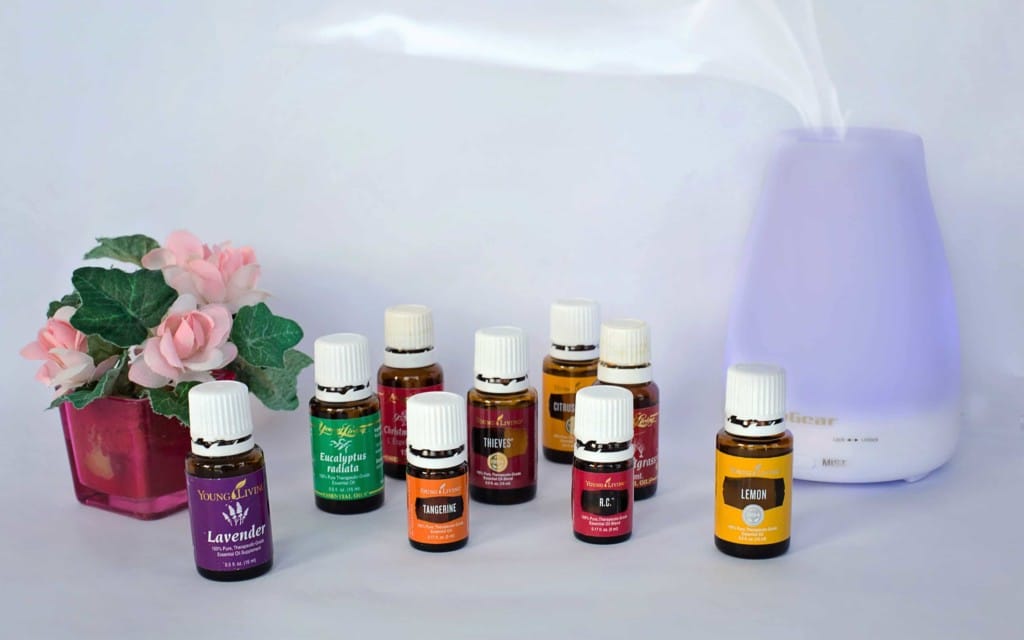
Do essential oils work for sleep?
So, how effective are essential oils for better sleep?
That all depends on who you ask.
Essential oils come in many different variations, and each scent has a unique effect on the nervous system. Some smells, like orange and citrus, can help to wake you up and feel happier each morning.
Scents like chamomile and lavender, can reduce anxiety, dealing with issues like sleep-based stress, so it’s easier for you to relax after a long day.
For instance, one study into ICU patients found that when the carers used lavender, neroli, and chamomile oils in their rooms, their stress levels dropped significantly, while their sleep quality improved. In particular, the scent of lavender, helped to increase deep slow-wave sleep.
If you’ve been dealing with insomnia for a while now, it might be hard to believe that a whiff of any specific oil could help you get to sleep faster. However, scientists are increasingly finding new evidence to suggest essential oils for sleep and anxiety really do work.
The best essential oils for sleep come can be divided according to the problems they target. Some oils prevent insomnia by calming the mind and reducing anxiety. Other oils that are intended to reduce your risk of sleep apnea and snoring by limiting obstructions in the airways.
Essential oils can be inhaled via a diffuser, used topically or in rare cases ingested.
Whatever essential oils for bedtime you choose, you can rest assured these solutions will fill your bedroom with a pleasant scent, which has a positive impact on your sleeping environment. Since sleep hygiene and an effective nighttime routine can go a long way towards curing insomnia, using essential oils makes a lot of sense.
If you use the same essential oils to make you sleep night after night, your mind will begin to associate a particular fragrance with falling asleep, helping you to drift off faster.
Not only are essential oils for sleep and stress proven to be useful, but they’re also a lot more appealing for most people than over-the-counter aids and sleeping pills. While medication can have numerous unwanted side-effects like dizziness, drowsiness, and even dependence, essential oils to help sleep are completely natural.
One study from Germany found that the fragrance of jasmine can relieve anxiety and enhance sleep just as effectively as commonly prescribed medication.
Although we need more research to know for certain just how effective essential oils for restful sleep really are, there’s certainly plenty of information to suggest that this route could be an ideal solution for today’s insomniacs.
Just remember natural oils have different effects on specific people. For instance, some people find sandalwood is a relaxing and sleep-inducing fragrance, while others use the same scent to become more alert and awake.
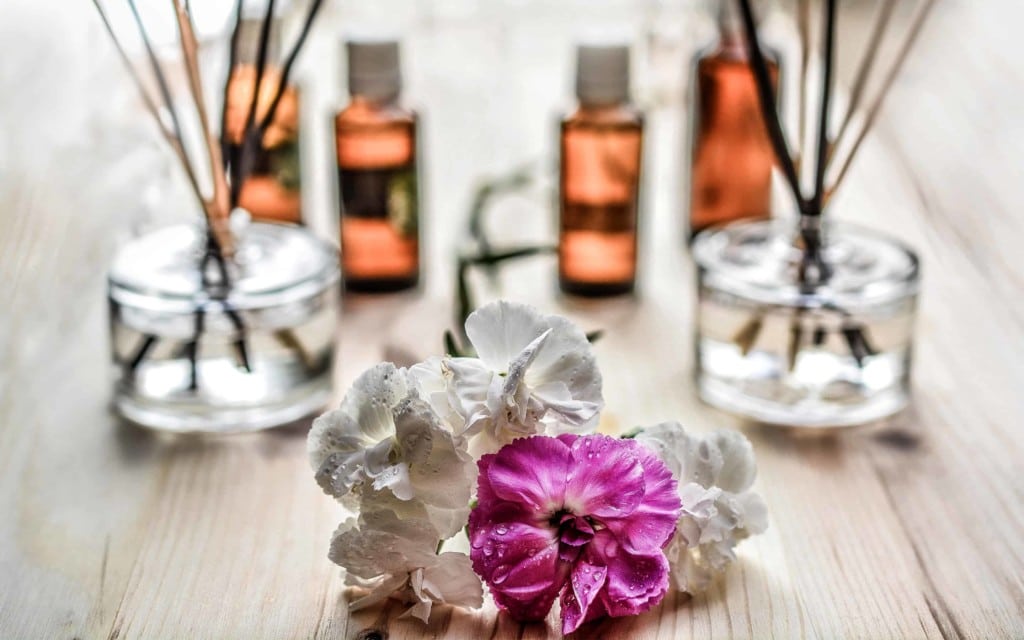
How to use essential oils to promote sleep
If you have a lot of issues with rest, then it may be worth giving essential oils for restful sleep a try.
As mentioned above, there are far fewer side effects associated with essential oils than with traditional medications — provided that you use them properly. As part of your nightly routine, essential oils can reduce your risk of problems like anxiety, stress, and even depression — all conditions that commonly keep people awake.
Countless studies find connections between the use of aromatherapy-based treatments and improvements in mood for people with anxiety and depression.
Today, you can find essential oils available to purchase in a range of environments, from health food stores and online marketplaces to pharmacies and large retailers. The key to success is knowing which oils to buy and how to use your essential oils to aid sleep.
For instance, most experts recommend only purchasing pure oils. Artificial fragrances don’t provide the same benefits. What’s more, the more artificial ingredients you have in your essential oils, the more likely it is that you could end up with irritated skin when you apply these solutions topically or use them on your bedding.
Once you find the right quality of essential oils for restful sleep, you’ll need to decide how you want to use them. Some common options include:
Consuming essential oils
Crucially, before you start adding drops of essential oils to your water or nightly cups of tea, you’ll need to make sure that they’re safe to consume. Solutions like valerian are great for consumption, but some alternative oils may be dangerous when taken by mouth. Make sure you research your chosen oils before you use them.
Adding a few drops to your bath
If you can’t take your essential oils to help with sleep by mouth, you can always try adding them to your bath instead. Introducing a hot bath to your regular bedtime ritual is a fantastic idea. Just make sure that you get out of the tub around an hour before your bedtime. Hot water can increase circulation, which may wake you up rather than making you sleepy.
Spray essential oils onto your bedding
Many of the most popular essential oils for deep sleep are now available in a pre-mixed spray so you can apply to your bedding. These sprays are designed to be applied to your pillow so you can smell them as you fall asleep, without disrupting your partner. You can even create your own spray with essential oils if you know how to mix these substances correctly.
Put your oils in a diffuser
If you want to fill your entire room with a relaxing fragrance each night, a diffuser is a great way to do just that. Placing your essential oils for restful sleep into a diffuser will evaporate the oil and allow it to spread around the room while adding extra humidity to your bedroom.
This increased humidity could make it easier for you to breathe, which could make diffusing the perfect option for oils intended to reduce snoring and sleep apnea.
Add oils to your facial steaming treatment
If you like using a steam treatment to unblock your pores and soothe your skin at night, then try adding some essential oils to this routine. Adding the right oils to your steaming treatment will relieve sinus congestion and alleviate some of the more common symptoms of sleep apnea.
Certain essential oils can also help with fighting back against breakouts and other issues that harm your daily confidence.
Try topical application
Finally, one of the most common ways to use essential oils for sleep and stress is to apply them directly to your skin. Massaging a small amount of oil into your neck, wrists or foot soles is a great way to access quick results. Just keep in mind that highly concentrated oils can sometimes cause skin irritation.
It can be better to use oils diluted with a carrier oil like olive oil or coconut oil to keep side effects to a minimum.
Before we continue check out these great products on Amazon.
What scents help you sleep? 5 of the best essential oils for sleep
There are dozens of great essential oils that can help you to access a better quality of sleep in various ways. For that reason, we’re going to provide a separate resource list of the top essential oils for your needs. However, to help you get started, let’s take a look at some of the most common scents that can help to encourage a better quality of sleep:
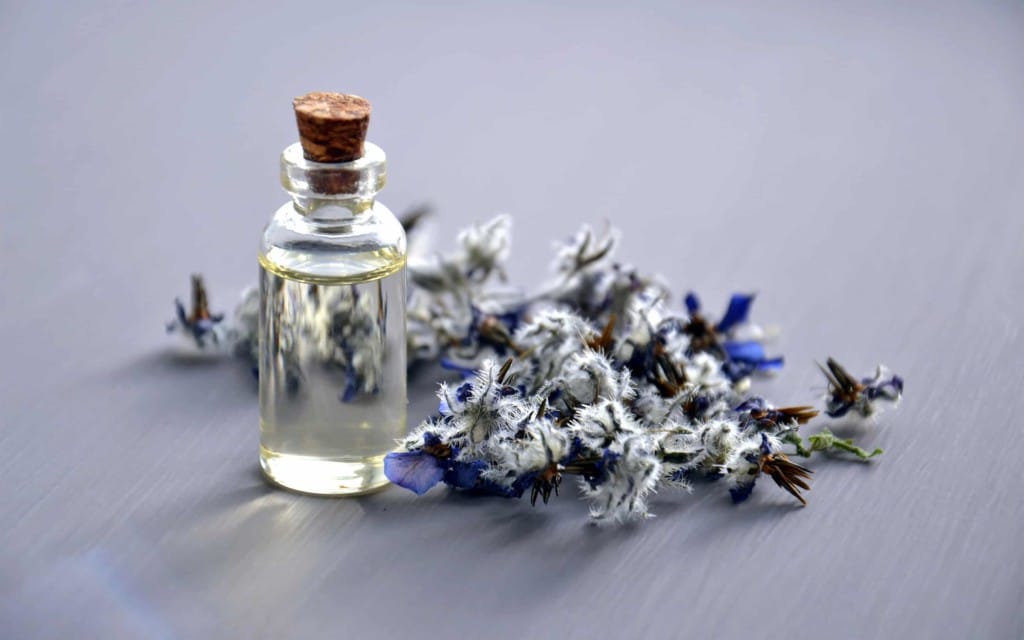
1. Lavender
Lavender is by far, one of the most popular scents when it comes to treating sleep issues with natural solutions. Lavender helps people to relax by promoting peace and feelings of comfort that chases away the stress and anxiety of the day.
According to one study conducted in 2015, lavender is particularly effective at improving the quality of sleep in women during postpartum periods. Other studies have found that lavender is excellent at relieving stress and promoting better sleep — even in people suffering from significant illnesses that require intensive care.
These days, it’s easy to find lavender oil in a wide range of essential oils for better sleep and insomnia aid products. You can even get lavender in massage oils and bath salts. One particularly popular way to unlock the benefits of lavender is to infuse it into a relaxing night-time tea.
2. Bergamot
Bergamot is another well-known solution in our list of the top essential oils for deep sleep. However, most people know bergamot as the oil that’s responsible for giving a unique flavour and fragrance to Earl Grey tea.
Bergamot comes from the peels of a citrus fruit called citrus bergamia, and it’s fantastic at reducing feelings of stress and anxiety. While research into the effects of bergamot is somewhat limited, some studies find that this solution can help to reduce negative emotions and feelings of fatigue.
When you’re using bergamot essential oil for sleep and anxiety, it’s best to mix it with a carrier oil like avocado oil or jojoba. Once mixed, you can add this oil to a bath or use it directly on the skin. Another great option is to add your bergamot oil directly to an aromatherapy diffuser.
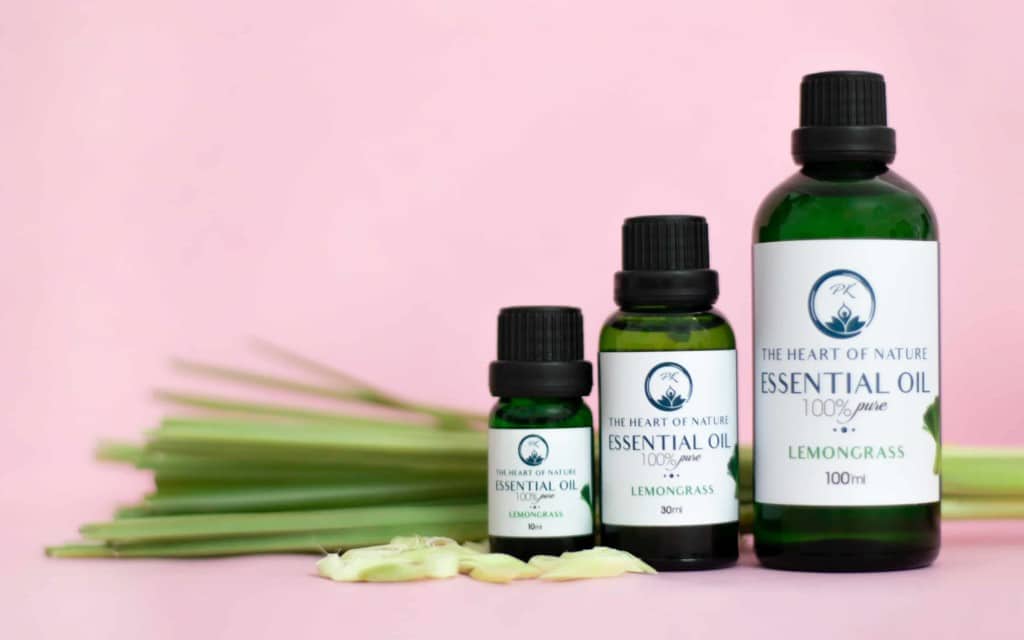
3. Lemongrass
Another excellent choice for people in search of essential oils for sleep and stress, lemongrass comes from the lemongrass herb and delivers a fresh minty fragrance. Inhaling the scent of this delightful oil or applying it carefully to your skin when mixed with a carrier oil can reduce the symptoms of anxiety and eliminate stress.
Like many of the essential oils to promote sleep that we’ve mentioned so far, the research available into lemongrass is somewhat limited. However, one study published in 2015 found that people who used lemongrass essential oils experienced an immediate reduction of tension and anxiety. What’s more, the people in the study were able to recover more rapidly from anxiety-inducing situations than their counterparts.
4. Neroli
Neroli is one of the lesser-known essential oils for sleep on the market today, but it’s also one of the options best-suited for helping with insomnia. With a unique sweet and spicy fragrance, the neroli essential oil is often recommended by alternative medicine advocates for the treatment of anxiety.
One study published in the journal for Hepato-Gastroenterology found that participants who inhaled neroli oil before undergoing colonoscopy procedures were calmer and had lower systolic blood pressure. However, the information available for insomnia sufferers is still very limited.
5. Ylang-Ylang
Speaking of essential oils for sleep and anxiety, ylang-ylang is another excellent option. Intended to support the millions of people around the world who suffer from high blood pressure and stress, ylang-ylang works as part of a comprehensive strategy for anxiety management to reduce blood pressure and encourage relaxation.
One study published in 2012 found that breathing in the smell of a ylang-ylang aromatherapy blend led to a significant reduction in stress hormone levels and blood pressure.
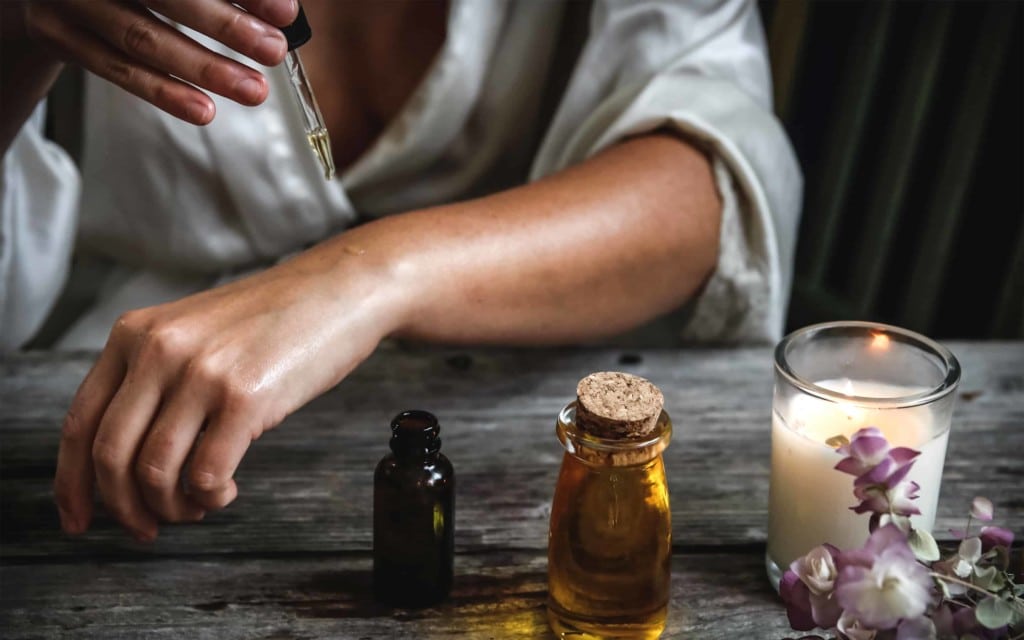
Tips on using essential oils for sleep and stress
With so many different essential oils to aid sleep on the market today, it’s often a good idea to experiment with different options until you find the one that’s most suitable for you.
However, before you go out and start sniffing through all the oils you can find, remember that there are some best practices you’ll need to keep in mind if you want to get the most out of this alternative therapy solution for insomnia.
For instance, the first thing you need to know is that essential oils for better sleep are usually adaptogens. This means that each oil reacts differently to the person who is taking it, but gives stabilization of physiological processes and promotes of homeostasis.
Vetiver oil can relieve insomnia for some people and create a feeling of refreshment and focus for others. Additionally, while lemongrass is excellent at reducing feelings of tension, some people find that it isn’t the best essential oil to make you sleep, because it can also create a sensation of alertness and clarity.
Another point to keep in mind when you’re looking for essential oils for insomnia is that topical application is often advised as one of the best ways to get results fast.
A high-quality essential oil will be able to permeate your skin and enter your bloodstream. This means that not only will you smell the essential oils on your wrists or neck, but you’ll also benefit from the substances moving through your entire body.
However, it’s crucial to be careful when you’re using essential oils in a topical manner. If you have allergies or sensitive skin, then applying certain oils topically could lead to irritation or discomfort — even when you dilute the substance.
To minimise your risk of an allergic reaction when using essential oils to aid sleep, make sure that you mix the substance with a carrier oil. Additionally, it’s always a good idea to test the way that your skin reacts to new substances before you coat yourself in oil.
Before adding oils to your bath, or applying them in large doses, test the mixed substance on a small patch of skin and see how you react over a period of 24 hours. This will reduce your chances of a severe allergic reaction significantly.
Most doctors also recommend mentioning whether you’re using essential oils as part of your insomnia treatment if you’re taking other medications. Even natural substances can interact negatively with other treatments from time-to-time.
Here are some guides to help you use essential oils for bedtime safely:
- Check out the National Association for Holistic Aromatherapy for a guide to the basic aromatherapy products that help with sleep.
- Visit the FDA to ensure that any essential oils you’re thinking about consuming are safe to take by mouth.
- Go to the Essential Oils Subreddit on Reddit for information from other users trying essential oils for sleep and stress.
Always make sure that you’re only using pure essential oils that lack any dangerous synthetic substances or additives too. Before you expose your skin, your bathwater, or your internal systems to any oils, you’ll need to make sure that you know exactly what’s in the substance you’re using.
Don’t take a label’s word for it that the oils you have bought are “natural.” Check the ingredient list and do your research into the brand responsible for the essential oils before you begin using them.
Checking the ingredients of essential oils for sleep is particularly important if you’re allergic to any additive substances that may be included as part of some blends, like peanut oil, for instance.
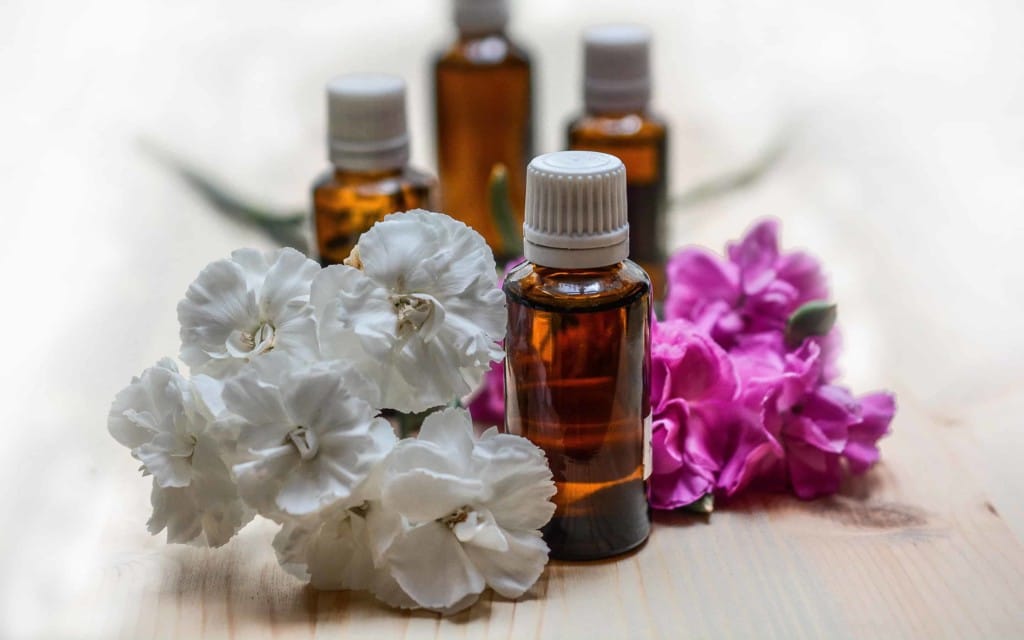
Embracing essential oils for bedtime relaxation
Since ancient times, various cultures have used plant and flower extracts to relieve stress, calm the body, and eradicate the symptoms of insomnia. What’s more, modern research continues to highlight the clear benefits of essential oils to aid sleep patterns.
When it comes to finding a natural way to aid relaxation, eliminate stress, and improve sleep, there are few options more appealing and beneficial than essential oils for deep sleep.
Scientific reports have proven that the right herbs and mixes can intervene with the stress response in your body, keeping cortisol levels in check, restoring calm to the nervous system, and more. However, just because essential oils do work well for a lot of people, doesn’t mean that they’re going to deliver results for you.
It’s important to approach essential oils for insomnia with realistic expectations. Do your research and be prepared to spend some time experimenting before you find the oil that works for you.
Siestio. Sleep Matters.
General advice disclaimer
This article contains general tips and advice. However, no diet or exercise program should be started without consulting your physician or other industry professional first. For more information read our full disclaimer here.



